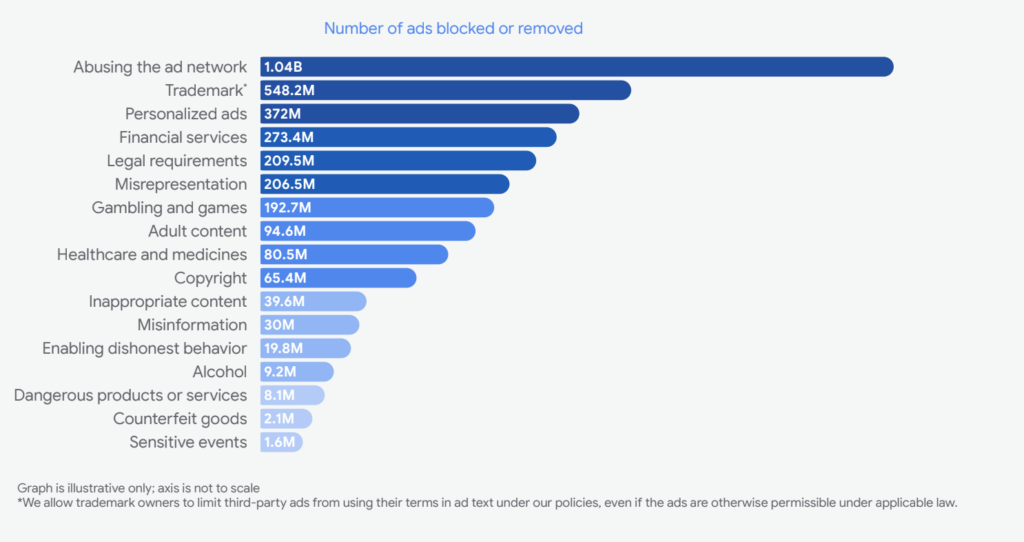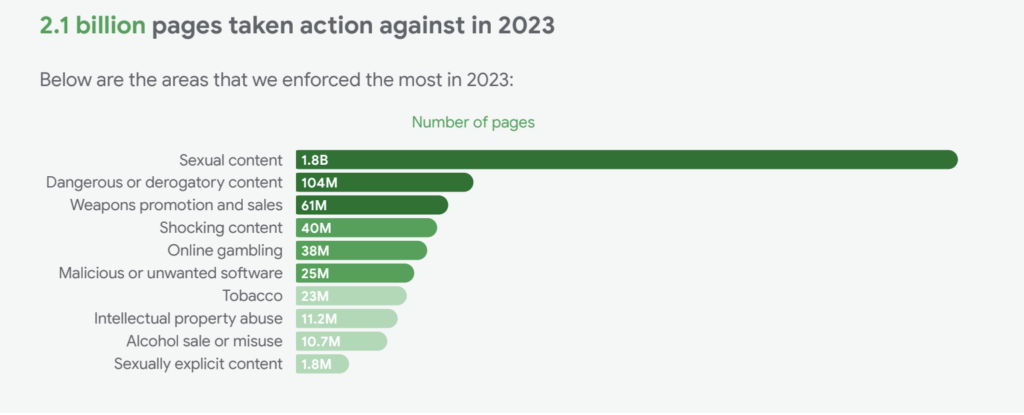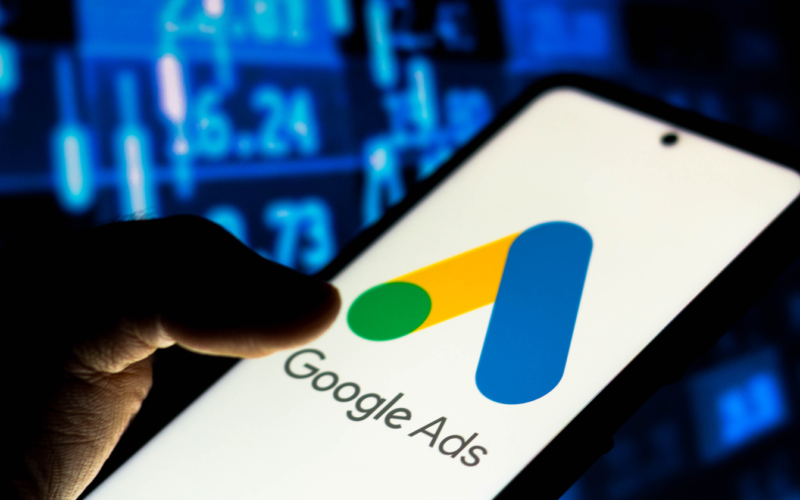In 2023, Google made a significant stride in ensuring the safety and integrity of its advertising ecosystem by blocking or removing over 5.5 billion advertisements that violated its policies, averaging more than 9,000 ads per minute. This effort was highlighted in its annual Ads Safety Report, which shed light on the challenges and advancements within the digital advertising space.
A notable trend identified in the report was the growing impact of generative AI technology on the advertising industry. This emerging tech has brought about transformative changes, enhancing aspects from performance optimization to creative image editing, thus reshaping the landscape of digital advertising.
Google has leveraged AI and advanced large language models, including its proprietary Gemini system, to bolster its enforcement capabilities. These AI-driven efforts have significantly improved the speed, strength, and accuracy of Google’s policy enforcement mechanisms, allowing for policy adherence at an unprecedented scale.

Duncan Lennox, the Vice President & General Manager of Ads Privacy and Safety at Google, pointed out the escalating challenge of scams and fraudulent activities across online platforms in 2023. He emphasized that malicious actors are continually refining their methods to exploit digital advertising for nefarious purposes, targeting unsuspecting individuals and legitimate businesses.
Lennox highlighted the increasingly sophisticated nature of these bad actors, especially in their exploitation of Google’s policy against Unreliable Financial Claims. This policy targets deceptive ads promoting unrealistic financial gains, such as get-rich-quick schemes. Malefactors have adapted by crafting their messaging to circumvent detection, often disguising their schemes through ads offering investment advice or promoting emerging financial products and digital currencies, with the aim of defrauding users.
In response to the dynamic and evolving threats within the digital advertising space, Google has continuously refined its policies, mobilized rapid-response enforcement teams, and honed its detection methodologies. “Our safety teams have been leveraging AI-driven machine learning systems for a long time, which has enabled us to enforce our policies broadly and efficiently. This technological advantage allows us to intercept and eliminate billions of malicious ads before users encounter them,” Duncan Lennox elaborated.
However, Google acknowledged that the advent of generative AI brings with it a new set of challenges. “We are fully aware of these emerging issues and are committed to detailing and implementing strategies to tackle them decisively. Our teams are proactively engaging with this revolutionary technology, especially Large Language Models (LLMs), to enhance our ability to protect online users,” Lennox further added.
The deployment of AI technologies has significantly bolstered Google’s enforcement capabilities across the board. In 2023 alone, Google succeeded in blocking or removing over 5.5 billion advertisements and suspending 12.7 million advertiser accounts, a figure that nearly doubles the tally from the previous year. Furthermore, the company prevented ads from appearing on more than 2.1 billion pages managed by publishers, registering a slight increase from the figures reported in 2022.
Additionally, Google took decisive enforcement actions against more than 395,000 publisher sites over the course of 2023, underscoring its commitment to maintaining a safe and trustworthy advertising ecosystem for users and legitimate advertisers alike.
How Google Ads Protection Started
In November 2023, Google introduced Limited Ads Serving, a strategic policy aimed at safeguarding users by curbing the visibility of advertisers lacking a history of credible behavior on the platform. This policy institutes a “get-to-know-you” phase for new advertisers without a proven track record of compliance and ethical advertising practices.
During this probationary period, the reach of their advertisements may be restricted, especially if the connection between the advertiser and the brand they are promoting is ambiguous or not well established.
Duncan Lennox outlined that although Limited Ads Serving is a recent initiative, its primary goal is to allow reputable advertisers the opportunity to establish and strengthen trust with the platform’s users. Concurrently, it aims to curtail the influence of malevolent actors, thereby diminishing the likelihood of scams and deceptive advertising practices.

The 2023 Ads Safety Report also showcases Google’s adeptness in quickly identifying and mitigating emerging abusive trends. For instance, a notable increase in deceptive campaigns utilizing the images of celebrities or public figures, often manipulated through deepfake technology to defraud users, was observed last year. Upon recognizing this menace, Google promptly formed a specialized task force to tackle the issue head-on.
“We identified recurring tactics employed by these fraudulent actors and fine-tuned our automated enforcement systems to recognize and eliminate similar deceptive advertisements. Furthermore, we revised our misrepresentation policy, enhancing our capability to swiftly deactivate the accounts of those engaging in such nefarious activities,” Duncan elaborated, emphasizing Google’s commitment to maintaining a secure and trustworthy advertising environment.
In 2023, Google took decisive action against fraudulent and deceptive advertising, blocking or removing 206.5 million ads for breaching its misrepresentation policy, which includes a variety of scam tactics, alongside eliminating 273.4 million advertisements. Furthermore, the company eradicated over 1 billion ads implicated in abusing the ad network, including those promoting malware, showcasing its commitment to maintaining a safe and trustworthy digital advertising ecosystem.
Duncan Lennox acknowledges the continuous battle against scam advertisements, underscoring Google’s ongoing commitment to allocate substantial resources, invest in advanced detection technologies, and engage in collaborative efforts with organizations like the Global Anti-Scam Alliance and Stop Scams UK. These partnerships aim to foster information exchange and bolster consumer protection on a global scale.
Looking forward, the dynamic nature of the digital advertising landscape, especially with the advent of new technologies like generative AI, demands agility and preparedness to address emerging challenges. Google is proactive in this regard, consistently evolving its policies, enhancing its enforcement mechanisms, deepening cross-industry partnerships, and amplifying control measures for users, publishers, and advertisers. With over 31 significant technological advancements in 2023, Google is poised to navigate the uncertainties of 2024 and beyond, fortified by its strategic investments in policy development, detection capabilities, and enforcement strategies.












